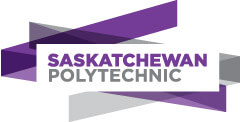About Bachelor Of Applied Management in Saskatchewan Polytechnic
Program Overview
In Saskatchewan, 4 out of every 10 people currently working in management are over the age of 55. Retirement is looming for nearly half our management workforce. This reality presents an opportunity for those with the right combination of skills, experience, and education.
The new Bachelor of Applied Management (BAMgt) degree program provides journeypersons and non-business diploma graduates with a unique opportunity to leverage existing education and experience into a bachelor's degree with only two years of additional study.
The BAMgt degree is designed to meet the emerging need for qualified managers by providing you with two years of course credit towards the four-year bachelor's degree. The program provides theoretical knowledge and technical training through applied learning opportunities. You will build knowledge and skills in a wide range of leadership and management disciplines including accountancy, human resource management, business communications, strategic management, leadership development, business analytics, finance, change management, risk management, commercial law, and economics.
On-campus classes are offered evenings and weekends, which makes completing the program accessible while continuing to work full-time.
Your Career
As a BAMgt graduate, you will be prepared for success in management and leadership roles in a variety of sectors including health care, construction, utilities, information technology, automotive services, agriculture, mining, manufacturing, restaurant and food, recreation and tourism, early childhood education, and more. Whichever sector you choose, this unique combination of education and experience will position you for career advancement in management and leadership roles.
Academic qualification equivalents:
- Secondary School Diploma or equivalent, include one English, Grade 12 (ENG4C or ENG4U), minimum 60%
English language requirements (one of the below):
- IELTS : Overall minimum score of Band 6.5 with a minimum score of 5.0 in each component.
- TOEFL : An overall minimum score of 81 on the Internet-based Test of English
- PTE : A minimum score of 63 with minimum component scores of 50.
Saskatchewan Polytechnic Highlights
| Type |
Public |
| Campus Setting |
Urban |
| Application mode |
Online and Paper mode available |
| Graduation rate |
62% |
| Acceptance rate |
96% |
| Number of Students |
16,008 |
| Overall cost of living |
14,762 CAD |
| Academic calendar |
Semester based |
| % of International students |
6% |
| Number of campuses |
4 |
| Medium of instructions |
English |
| Undergraduate Tuition fee |
14,044 CAD |
| Postgraduate Tuition fee |
16,426 CAD |
| Cost of living |
694 -1147 CAD per month |
Saskatchewan Polytechnic First-Year Tuition Fees And Living Expenses For International Students
Over the course of one academic year, the following graph displays tuition and living expense estimates in Canadian currency for one full-time international undergraduate student. Please bear in mind that these are only estimates; actual pricing will vary depending on your needs and preferences. Other factors to consider include currency changes, visa and study authorization fees, and vacations back home.
- For international students, the overall fees will range from:-
| Particulars |
Amount |
| Administrative fees |
50.00 to 150.00 CAD |
| Application fees |
150 CAD |
| Student association fee |
95.00 to 445.00 CAD |
| Non-refundable fee at the start) |
1,000 CAD |
| Tuition fee range |
6,195 to 18,089 CAD |
| Laboratory fee |
100.00 to 409.00 CAD with no fees for
some courses which do not have a lab service. |
| Books and Supplies |
200 to 3,725 CAD |
| Technology fee |
50 to 146 CAD |
- For a student of Saskatchewan Polytechnic the required financials (Cost of Attendance) can be:-
| Description of Financials |
Amount in CAD |
| Average cost of tuition |
11245.77 CAD |
| Cost of living |
10799.39 CAD |
| Application fee |
150 CAD |
| Estimated total (per year) |
22,195.16 CAD |
